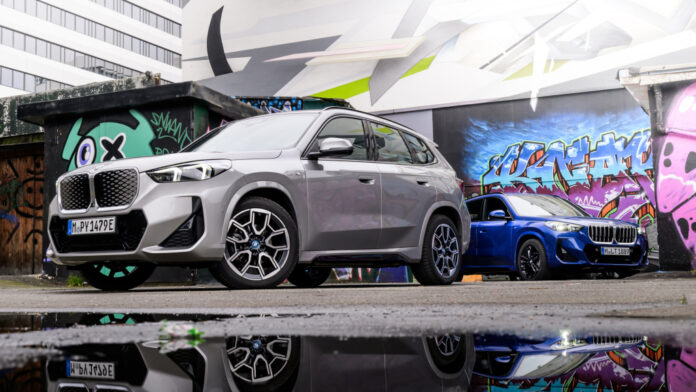The compact SUV market is witnessing a remarkable transformation, with a growing emphasis on versatility and performance. Recent trends indicate that consumers are increasingly seeking vehicles that offer not only practicality but also a diverse range of powertrain options. In this competitive landscape, one model stands out due to its impressive array of choices and innovative engineering. The latest offerings are not merely about aesthetics; they are about delivering a driving experience that caters to various preferences and needs. How does one model manage to encapsulate this evolution in the automotive industry?
As the automotive sector pivots towards sustainability and efficiency, consumers are faced with a plethora of options that can be overwhelming. The demand for compact SUVs has surged, driven by their ability to blend functionality with a sporty edge. Buyers are no longer just looking for a vehicle that meets their basic transportation needs; they want one that reflects their lifestyle and values. This shift raises the stakes for manufacturers to innovate and adapt. What does this mean for the future of compact SUVs, and how does one standout model navigate these challenges?
Diverse Powertrain Options
The modern compact SUV is defined by its diverse powertrain options, catering to a wide range of consumer preferences. This segment has evolved significantly, offering everything from traditional gasoline engines to hybrid and fully electric variants. This flexibility allows buyers to choose a model that aligns with their environmental concerns and driving habits. The introduction of these varied options is not just a trend; it represents a fundamental shift in how manufacturers approach vehicle design and consumer needs.
For instance, the base gasoline engine provides a reliable and familiar driving experience, appealing to those who prioritize performance and convenience. In contrast, the entry-level electric variant caters to eco-conscious consumers who are eager to reduce their carbon footprint. This variety is crucial, as it enables potential buyers to make informed decisions based on their individual circumstances, such as commuting patterns and fuel availability. The ability to choose between different powertrains can significantly influence a buyer’s decision-making process.
Moreover, the implications of offering such a wide array of powertrains extend beyond just consumer choice. It encourages manufacturers to invest in research and development, leading to innovations that enhance efficiency and performance. As the market continues to evolve, the ability to adapt to changing consumer preferences will be paramount for success. The question remains: how will these diverse options shape the future of compact SUVs in an increasingly competitive market?
Performance and Efficiency
Performance and efficiency are critical factors that consumers consider when selecting a compact SUV. With the rise of stringent environmental regulations and a growing emphasis on sustainability, manufacturers are compelled to prioritize fuel efficiency and performance metrics. This dual focus not only meets regulatory standards but also aligns with consumer expectations for a vehicle that delivers both power and economical operation.
For example, the latest models are engineered to optimize fuel consumption while maintaining a spirited driving experience. Advanced technologies, such as turbocharging and hybrid systems, have been integrated to enhance performance without sacrificing efficiency. This balance is particularly appealing to buyers who seek a vehicle capable of handling both urban commutes and weekend adventures.
Furthermore, the integration of smart technology plays a significant role in enhancing both performance and efficiency. Many models now feature adaptive driving systems that adjust power distribution based on driving conditions, ensuring optimal performance at all times. This not only improves the driving experience but also contributes to better fuel economy. As consumers become more discerning, the ability of manufacturers to deliver vehicles that excel in both performance and efficiency will be a key differentiator in the compact SUV market.
Consumer Trends and Preferences
Understanding consumer trends and preferences is vital for manufacturers aiming to capture the compact SUV market. Recent studies indicate a shift towards vehicles that offer advanced safety features, connectivity, and customization options. Buyers are increasingly looking for vehicles that not only meet their practical needs but also enhance their overall driving experience through technology and personalization.
The demand for advanced safety features, such as adaptive cruise control, lane-keeping assist, and collision avoidance systems, is at an all-time high. These technologies not only provide peace of mind but also reflect a growing consumer awareness of road safety. Additionally, the integration of smart connectivity options, such as smartphone compatibility and in-car Wi-Fi, has become a significant selling point for many buyers.
Customization also plays a crucial role in shaping consumer preferences. Many buyers are looking for vehicles that allow them to express their individuality through various trim levels, color choices, and accessory options. This trend emphasizes the importance of providing a tailored experience that resonates with diverse consumer lifestyles. As the market continues to evolve, manufacturers must remain attuned to these changing preferences to remain competitive and relevant in the compact SUV segment.
The Future of Compact Suvs
The future of compact SUVs appears bright, driven by ongoing advancements in technology and a growing focus on sustainability. As manufacturers continue to innovate, consumers can expect to see even more diverse powertrain options, enhanced performance capabilities, and advanced safety features. The evolution of this segment will likely reflect broader trends in the automotive industry, including the shift towards electrification and smart mobility solutions.
Moreover, the increasing integration of artificial intelligence and machine learning into vehicle systems is set to revolutionize the driving experience. These technologies will not only enhance performance and efficiency but also enable a more personalized driving experience tailored to individual preferences. As consumers become more accustomed to these advancements, their expectations for compact SUVs will continue to rise.
Ultimately, the compact SUV market is poised for significant growth and transformation. As manufacturers respond to evolving consumer demands and regulatory pressures, the landscape will shift towards more sustainable and innovative solutions. This dynamic environment presents both challenges and opportunities, making it an exciting time for consumers and manufacturers alike as they navigate the future of mobility.


